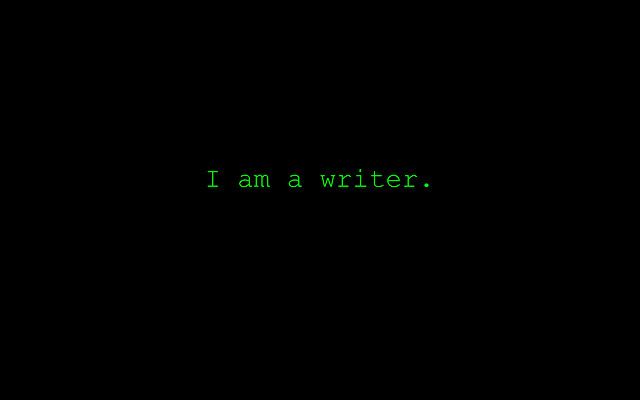Words by Stan Lilmbakis
“I’m a writer.”
“Yeah? How cool! What sorta stuff do you write?”
“Um, well it’s still mainly short stuff: short stories, poetry–I don’t think I’m a poet–the poems I write are just really short prose with the enter key used creatively.”
“That’s funny; I’ve always wondered how a poet makes that choice.”
“When to hit enter?”
“Yeah: arbitrary, reasoned, calculated
“You know you couldn’t ever say that to a poet, right?”
“They’d get angry and rhyme me senseless?”
“You’d be lucky to get away with just rhyme: enjambment, consonance, assonance–”
“Sounds painful–”
“Sounds like you’re poemist.”
“Poemist?”
“Yeah–sexist, racist …”
“Ah, poemist! Nah, I’m not poemist; some of my best friends are poets. Poem envy maybe.”
“Huh?”
“Like penis.”
“You can’t ever say shit like this out loud. Just don’t, man.”
“Whatever. So, you’re not a poet but you dabble. What do you write?”
“Well, I always thought I was a storyteller–fiction, ‘specially short stories. I thought it was my thing, but I’m doin’ this degree and one of the many things they’ve splattered us with is non-fiction, and it’s kinda stuck, and I’m a little confused–working myself through it.”
“You wanna write for newspapers? You gonna be a journo?”
“Nuh-nuh, nuh-nuh–you see that’s the thing–there’s a category that’s like, creative non-fiction, or even literary non-fiction.”
“Blur the line between the truth and the writing?”
“No, no; the truth can’t be blurred. If it’s non-fiction, it either has to be true or believed to be true. But the writing is blurred, yes! Truman Capote, Joan Didion, even Chloe Hooper, you know that Tall Man thing with the Palm Island riots. They use beautiful, engaging language, but they also become part of the story– they insert themselves and their views and ideas and questions and struggles. The stuff can be long and page turning, or short and punchy, and some reckon you can even write –you’re gunna love this–non-fiction poetry!”
“Huh! I once knew a girl from Nantucket–”
“Idiot; only if you actually did. It has to be the truth, or at least a truth.”
“Okay. Cool. So, you’re a non-fiction writer, that’s great. Where can I read some of your stuff?”
“I can send you some bits-and-bobs I been working on.”
“No, I mean where have you been published?”
“Well, I’ve sent stuff to Lifted Brow and Overland and Suburban Review and Visible Ink and I’ve entered some competitions–”
“So, I can read you in Lifted Brow?”
“No, not yet; they rejected the piece I sent, but said to try again.”
“Overland?”
“Nope”
“Visible Ink?”
“Nope.”
“So, you haven’t been published?”
“No, not yet. But I’ve submitted and been rejected heaps, and I think Stephen King says he had rejection slips coming out of his proverbial but he kept on writing–”
“I’ve read that somewhere too; something about nailing them on the wall. But he was like, fourteen at the time, not fifty.”
“Mere details.”
“Do you write every day?”
“Not really, no. I get tied up with work and kids and stuff–but I think about it every day.”
“So you don’t write every day, and you’ve never been published, but you’re a writer?”
“We agreed I was a non-fiction writer!”
“Okay. What was the most challenging thing you’ve written this year?”
“That’s easy–a CV.”
“But you’ve been working for a million years, how can–”
“A writer’s CV.”
“Aha! And a CV is non-fiction and non-fiction implies truth and–”
“I haven’t been published and I don’t write every day.”
Image: Flickr (David Turnbull- I am a writer)

